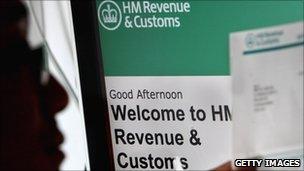HMRC: Tax dodgers face fresh crackdown
- Published

Commodity traders are another target group for HMRC
Rich tax-dodgers who own foreign properties will face extra scrutiny from the UK's tax authorities.
People with between £2.5m and £20m in wealth - and homes abroad - are the first to be targeted by a recently established unit of tax inspectors.
HM Revenue & Customs (HMRC) said it hoped the new unit would raise half a billion pounds in extra tax over the next three years.
A spokesman said commodity traders would be the unit's next target.
"We have intelligence that there are some traders who are not declaring their income to us," said an HMRC spokesman.
He added that there was clear evidence that some wealthy people with homes abroad had also been dodging tax.
"There is a small tranche who will not be declaring rental income, or who will not be able to explain how they got the money to buy the property in the first place," he warned.
Very rich
The new unit, looking at the affairs of the "affluent", was set up in September and will target about 200,000 people who are typically 50% rate taxpayers.
Its establishment follows the success of a similar unit set up a few years ago to scrutinise the tax affairs of the 5,000 or so people described as "high net worth" - in other words, very rich.
They are defined by HMRC as having wealth of more than £20m.
Extra tax amounting to £85m was squeezed from them in the 2009-10 tax year and the authorities say they are on track to glean an extra £151m from them for 2010-11.
The latest initiatives from HMRC follow in the wake of its efforts in the past few years to flush out UK citizens who have been hiding taxable income in offshore bank accounts.
The most recent move saw HMRC write to 6,000 UK citizens with HSBC bank accounts in Switzerland.
'Nothing to fear'
HMRC has also been targeting various professions and trades whose members it thinks are likely to have been dodging income tax, such as doctors and dentists, plumbers and heating engineers, private tutors and restaurant staff.
Ronnie Ludwig of accountants Saffery Champness said anyone contacted by HMRC would need to produce documents that verified the source of the funds they had used to buy the foreign homes.
"Those who have been letting out their foreign property and declaring the rents received have nothing to fear, but those who own foreign property which has never been let out should be prepared to prove to HMRC that they have received no income from the property," he said.
"This will involve producing UK and foreign bank statements and being able to demonstrate that they could afford to purchase and maintain the property out of normal declared sources," he added.